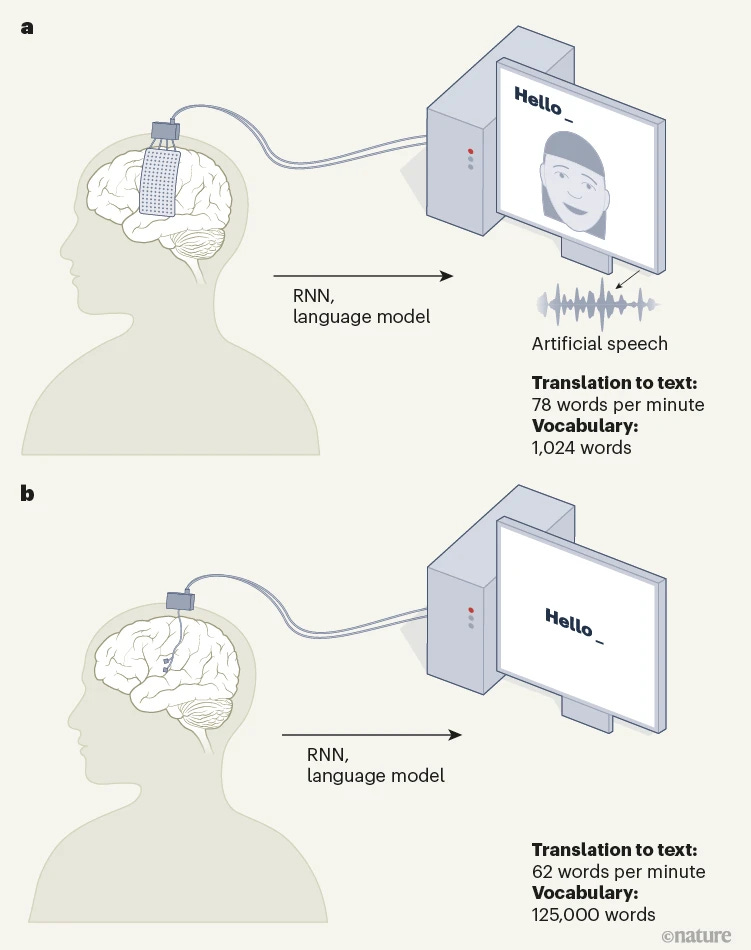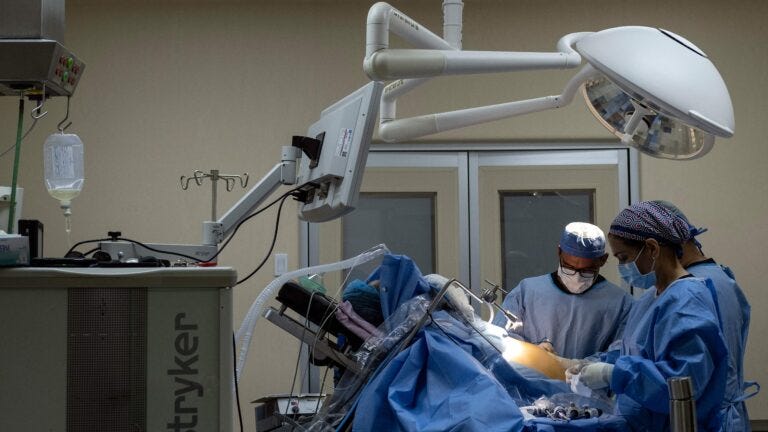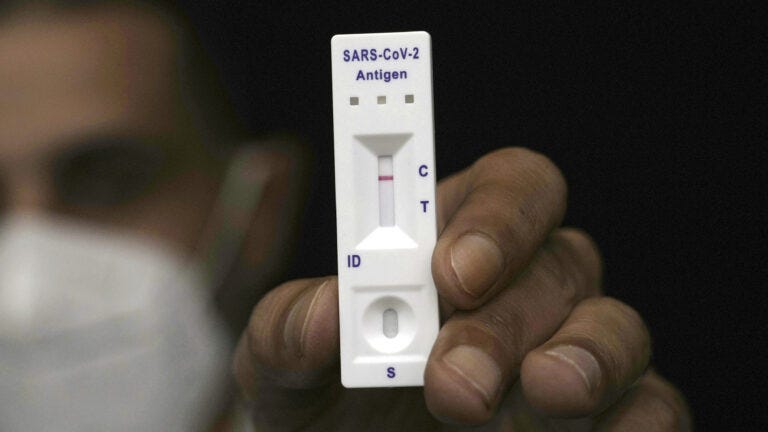Sci-Ed Update 289
AI gets creative, student success, salt-free diets, future of bariatric surgery, long COVID after negative test, brain implants for speech, and... I'd like your help!
AI scores in the top percentile of creative thinking
Of all the forms of human intellect that one might expect artificial intelligence to emulate, few people would likely place creativity at the top of their list. Creativity is wonderfully mysterious – and frustratingly fleeting. It defines us as human beings – and seemingly defies the cold logic that lies behind the silicon curtain of machines.
Yet, the use of AI for creative endeavors is now growing.
New AI tools like DALL-E and Midjourney are increasingly part of creative production, and some have started to win awards for their creative output. The growing impact is both social and economic – as just one example, the potential of AI to generate new, creative content is a defining flashpoint behind the Hollywood writers strike.
And if our recent study into the striking originality of AI is any indication, the emergence of AI-based creativity – along with examples of both its promise and peril – is likely just beginning.
With researchers in creativity and entrepreneurship Christian Byrge and Christian Gilde, I decided to put AI’s creative abilities to the test by having it take the Torrance Tests of Creative Thinking, or TTCT.
In addition to running the TTCT through GPT-4 eight times, we also administered the test to 24 of our undergraduate students.
GPT-4 scored in the top 1% of test-takers for the originality of its ideas. From our research, we believe this marks one of the first examples of AI meeting or exceeding the human ability for original thinking.
Kevin Patton comment→ Yikes!
Read more→ AandP.info/qzm
Salt-free diet ‘can reduce risk of heart problems by almost 20%’

Cutting out salt from meals can slash your risk of heart problems and strokes by almost a fifth, the largest study of its kind suggests.
Research has documented how adding salt to food increases the likelihood of cardiovascular disease and premature death. Now experts have established just how big a difference you could make to your heart health – simply by reducing the number of meals to which you add salt or by ditching it altogether.
Researchers found those who never add salt to meals were 18% less likely to develop atrial fibrillation (AF), a heart condition, compared with those who always do. The number diagnosed with the condition in the UK has increased by 50% in the last decade to 1.5 million.
Lead author Dr Yoon Jung Park, of Kyungpook national university hospital, South Korea, said: “Our study indicates that lower frequency of adding salt to foods was associated with lower risk of AF.”
Read more→ AandP.info/2yj
Want to Effortlessly Boost Your Memory, Learning, and Cognitive Skills? Neuroscience Says Embrace These 5 Simple Habits
Making smart decisions is a product of intelligence; that's why Jeff Bezos is a proponent of recognizing two-way doors. (Bezos also feels the the smartest people often change their minds, not because they're wishy-washy, but because they constantly evaluate new data, information, and experiences. Adam Grant writes about this in Think Again.)
The ability to make quick, seemingly instinctive decisions -- the key word here is "seemingly" -- is also a product of intelligence.
So is the ability to use knowledge and experiences to find innovative solutions; in fact, Steve Jobs felt that was the best indication of high intelligence.
Yet underpinning all the outcomes of intelligence is memory. Success in any pursuit is based on what you do with what you know, which means the more you retain and remember, the more you can do.
So yeah: memory matters.
Here are five easy ways to improve yours.
Kevin Patton comment→ This one (of the five) struck me because I say new terms (and other new things) I encounter in my reading out loud. And I encourage my students to do the same. And they look at me like I’m speaking Esperanto or something. And few of them do it. But it works!
This technique also works when I’m reviewing my slides just before giving a presentation. (In other words, I talk to myself all the time!)
1. Say it out loud.
Turns out smart people do talk to themselves. A study published in the Journal of Experimental Psychology found that saying words out loud (or even just mouthing the words) makes them more memorable.
While the mechanism behind it is unclear, neuroscientists theorize that saying something out loud separates and distinguishes it from "mere" thoughts. (You didn't just think it, you also heard it.) Then that idea, information, or plan is even more memorable.
When you need to remember something, say it aloud. (Or mouth it to yourself.)
Your cerebral cortex will help you retain it longer.
Read more→ AandP.info/klu
Student Success Courses for Anatomy & Physiology
Have you listened to the two-part series from The A&P Professor podcast? It outlines Kevin’s experience developing and delivering two different optional courses that support student success in the A&P 1 course.
To listen to this episode, click on the player (if present) or this link→ theAPprofessor.org/podcast-episode-140.html
To listen to this episode, click on the player (if present) or this link→ theAPprofessor.org/podcast-episode-141.html
I want your help!
I’m planning a podcast episode for The A&P Professor podcast about study skills and other learning skills for A&P students. For this episode, I’ll be focusing on those that are a bit outside the mainstream of what we usually see suggested for students. That is, I plan to skip “the usual” advice and talk about those odd little tricks and mind-hacks that can add to the learning strategies that help students remember, learn, and apply concepts.
If you have one (or more) to share, then please let me know! You can call and leave a voicemail (which I may use in the podcast episode), or email me at podcast@theAPprofessor.org or leave a comment here…
If you’d like to be interviewed in the episode (or in a different episode)—for a short, medium, or long segment—get in touch with me!
What do new weight loss drugs mean for the future of bariatric surgery?
With all the buzz about weight loss drugs and their dramatic effects (and cost), where does that leave bariatric surgery? Long the most effective treatment for obesity, its edge over drugs has narrowed, now that a recent trial of Wegovy showed the drug cut the risk of major heart complications by 20%. Bariatric surgeons told STAT’s Simar Bajaj the treatments could be complementary. They also shared lessons from history:
Jenny Choi: Anti-reflux surgery used to be the go-to treatment for stomach ulcers and heartburn, but proton pump inhibitor medications took over.
Marina Kurian: When coronary stents were on the rise in the ’90s and early 2000s, “everyone was like ‘cardiac surgery is dead,’” but surgeons shifted toward more complex cases, including those in which stenting failed.
Eric Sheu: Obesity medicine might parallel cancer treatment: Chemotherapy is given before surgery to reduce tumor size and after surgery to kill residual cancer cells.
Read more→ AandP.info/78m
New study suggests people who tested negative for Covid-19 can still develop long Covid
Of the 103 million confirmed cases of Covid-19 in the U.S., an estimated one-third have led to long Covid — a condition that ranges in severity, but can be debilitating. A new study suggests that even more people may be suffering from the post-viral syndrome without having ever received an official diagnosis of Covid-19.
The study, published Wednesday in Neurology, Neuroimmunology & Neuroinflammation, was small, examining only 29 patients. But it offers unique insights into how many cases of long Covid may go unidentified because the patient’s Covid-19 infection wasn’t detected.
Read more→ AandP.info/1n6
Brain implants that enable speech pass performance milestones

There is an urgent need to help people with neurological conditions that deprive them of the universal human need to communicate. Two articles published in Nature demonstrate that individuals who are unable to speak as a result of severe paralysis could potentially use implantable brain–computer interfaces (BCIs) to communicate at rates much greater than those typically achievable with alternative communication options. Willett et al.1 report a device that records brain activity using electrodes that penetrate the brain’s cortex, whereas Metzger and colleagues’ device2 uses electrodes placed on the cortical surface. These studies signal a turning point in the development of BCI technology that aims to restore communication for people with severe paralysis.
Various neurological disorders paralyse muscles crucial to speech and limb function while sparing cognitive functions, potentially resulting in locked-in syndrome — in which individuals can no longer initiate communication and can respond to queries only with eye blinks or minimal movements. A diverse range of systems, known as alternative and augmentative communication technologies, are available to help people with locked-in syndrome to communicate, but these require effort and are much slower (achieving, typically, just a few words per minute) than normal speech (about 150 words per minute). BCIs have the potential to solve these problems.
Read more→ AandP.info/mq5








